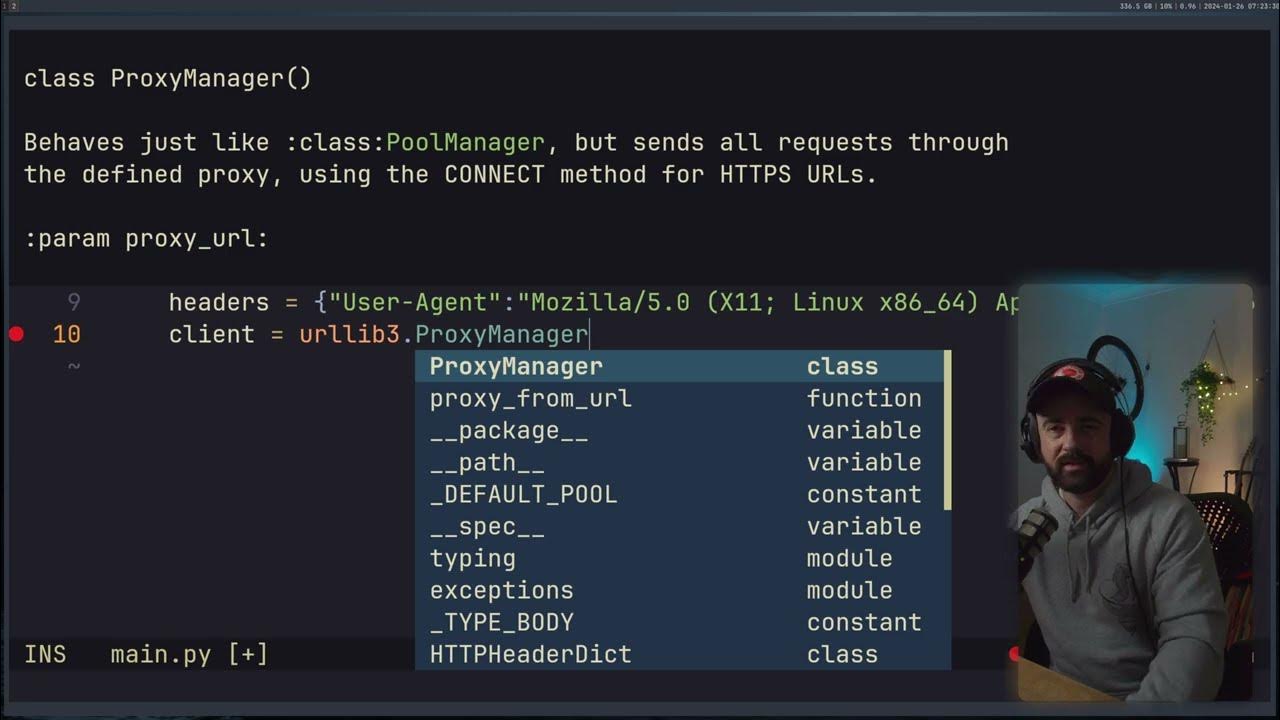Logseq Chaos? Mache nicht den selben Fehler...
Summary
TLDRThe video script discusses the intricacies of organizing information in a database using links and tags. It highlights the benefits of linking entries with a common theme to create a cohesive knowledge base, as well as the challenges of managing synonyms and unlinked references. The speaker also mentions the advantages of using tags for broader categorization and previews a future database version with hierarchical tagging capabilities, encouraging viewers to share their preferences between links and tags in the comments.
Takeaways
- 🧠 Organizing data in your second brain (database) requires efficient categorization to ensure easy retrieval.
- 🔗 Linking terms within entries can create individual pages for each term, which helps in cross-referencing.
- 📄 Using synonyms can consolidate multiple terms under one main topic, but this requires manual linking.
- 💡 Synonym linking captures unlinked references in past entries, ensuring comprehensive coverage of related topics.
- 🚗 The process of adding synonyms and links requires ongoing maintenance to keep everything organized.
- 🏷️ Tags offer an alternative to links, allowing for flexible categorization but require predefined categories.
- 📚 Tags are more straightforward but don't automatically include unlinked past references.
- 🔄 Transitioning from links to tags may simplify the database, but it loses the nuanced connections created by links.
- 🔍 The upcoming database version will introduce tags and sub-tags, enhancing organizational capabilities.
- 🤔 Choosing between links and tags depends on the database's growth and the user's preference for either detailed or broad categorization.
Q & A
What is the core concept of a database as described in the script?
-The core concept of a database, as described, is the ability to enter various entries on different topics and then retrieve all related entries when a common theme is selected.
How does the script suggest organizing entries in a database?
-The script suggests organizing entries by linking them to a central topic or keyword, which creates a page for that topic, allowing for easy retrieval of all related entries.
What is the advantage of using hyperlinks in the database as mentioned in the script?
-Using hyperlinks makes the database more readable and allows for easy navigation between related entries, as well as the automatic collection of unlinked references under the main topic page.
What is the purpose of creating separate pages for different forms of a word, such as singular and plural?
-Creating separate pages for different forms helps in organizing the database more effectively and allows for the collection of entries under each specific form of the word.
How can synonyms be used to enhance the database organization as per the script?
-Synonyms can be used by linking them to the main topic page, which helps in consolidating various related terms under a single central concept, making the database more comprehensive.
What is the script's suggestion for handling new words that are not direct synonyms but still relate to the same topic?
-The script suggests that when a new word related to the same topic is encountered, it should be linked to the main topic page and considered for inclusion as a synonym if it fits the criteria.
What is the potential drawback of using a synonyms system in a growing database?
-The potential drawback is that managing a synonyms system can become complex and time-consuming as the database grows, with the need to track and link many variations and synonyms.
What alternative method to using links does the script discuss for organizing a database?
-The script discusses the use of tags as an alternative method for organizing a database, which requires pre-defining categories and keywords before entering blocks of information.
How does the script describe the process of using tags in a database?
-The script describes using tags by adding them to the end of each block after the content is entered, which helps in categorizing the information without creating separate pages for each term.
What is the advantage of using tags over links according to the script?
-The advantage of using tags is that it avoids 'page chaos' and provides a clearer, more organized structure with predefined categories, making it easier to manage as the database grows.
What future feature of the database does the script mention and how does it relate to the current discussion on links and tags?
-The script mentions a future feature of the database that will allow the creation of tags and subtags or categories and subcategories, which will further enhance the organization and inheritance of properties within the database.
Outlines

This section is available to paid users only. Please upgrade to access this part.
Upgrade NowMindmap

This section is available to paid users only. Please upgrade to access this part.
Upgrade NowKeywords

This section is available to paid users only. Please upgrade to access this part.
Upgrade NowHighlights

This section is available to paid users only. Please upgrade to access this part.
Upgrade NowTranscripts

This section is available to paid users only. Please upgrade to access this part.
Upgrade NowBrowse More Related Video

Here Is How I Use Tags 🏷️ And Links 🔗️ In Obsidian To Manage My Zettelkasten 📝️

Try this SIMPLE trick when scraping product data

How to organize your notes in Obsidian // The LATCH method

Create a Highly Accurate Knowledge Base in Voiceflow using Tags API

How HACKERS Take Notes!! (Obsidian & More)

NEVER Do These Things On YouTube...EVER!
5.0 / 5 (0 votes)